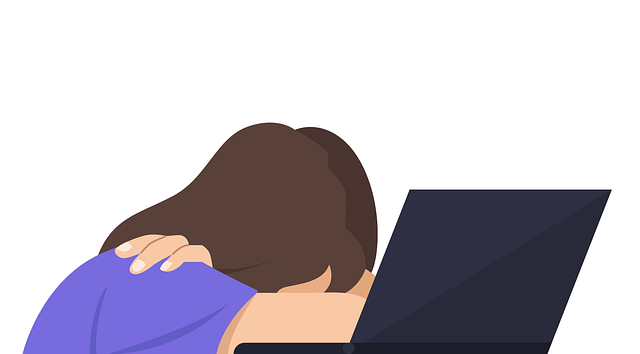Designing Comprehensive Mental Health Programs for Elders & New Mothers
Mental health education for the elderly and new mothers with postpartum depression is crucial but of…….
Postpartum depression (PPD) among elders, often overlooked due to societal norms and age-related stereotypes, is a growing concern in global healthcare. This comprehensive article aims to explore the intricate world of therapy tailored for elderly individuals experiencing PPD, shedding light on its significance, various approaches, and potential impact. By delving into this topic, we seek to empower both healthcare professionals and concerned families to better understand and support elders navigating this complex mental health challenge.
Therapy for elders postpartum depression refers to a specialized form of psychological treatment designed to address the unique needs of older adults who have experienced PPD. This therapeutic approach incorporates evidence-based practices, tailored interventions, and age-appropriate strategies to help individuals manage symptoms, regain control, and improve overall well-being. The core components often include:
The concept of targeted therapy for PPD in elders has evolved significantly over the past few decades. Historically, postpartum depression was largely discussed in the context of younger mothers, with older individuals often being overlooked or misdiagnosed. However, growing awareness and research have highlighted the distinct experiences and challenges faced by elders post-pregnancy or after significant life changes, such as the loss of a partner.
The significance of specialized therapy lies in several factors:
The impact of therapy for elders PPD is not limited by geographical boundaries, as the universal experiences of joy, loss, and mental health challenges transcend cultures. However, regional variations exist due to cultural norms, healthcare systems, and socioeconomic factors:
Several trends are shaping the global landscape of therapy for elders PPD:
The economic implications of therapy for elders PPD are multifaceted:
Therapy for elders PPD plays a vital role in sustainable economic development:
Technological advancements have revolutionized therapy for elders PPD:
The future holds immense potential for technological innovations:
Policies and regulations play a pivotal role in shaping the availability and quality of therapy for elders PPD:
Policies and regulations have a direct impact on:
Despite growing awareness and progress, several challenges hinder the effective delivery of therapy for elders PPD:
Criticisms of current practices offer valuable insights for improvement:
The following case studies illustrate successful implementations of therapy for elders PPD, highlighting key elements that contributed to positive outcomes:
Case Study 1: Community-Based Support in Rural America
In a rural US county, a local non-profit organization developed a community-based program combining group therapy sessions with peer support. The program addressed the unique challenges faced by older farmers post-retirement and postpartum. Results showed significant reductions in PPD symptoms, improved social connections, and increased participation in community activities. This approach demonstrated the power of tailored interventions and community engagement.
Case Study 2: Digital Therapy in Urban Australia
A digital health startup in Sydney, Australia, created a mobile app offering personalized therapy for elders experiencing PPD. The app included interactive exercises, mindfulness meditations, and access to a supportive online community. A pilot study revealed high user satisfaction and significant improvements in mood and anxiety scores among participants. This case highlights the effectiveness of digital tools in improving access and engagement.
Case Study 3: Culturally Sensitive Therapy in Multicultural Canada
In Toronto, Canada, a multicultural mental health clinic developed a culturally adapted therapy program for elders from diverse ethnic backgrounds. The approach incorporated traditional healing practices, language interpretation services, and cultural references to create a safe and welcoming environment. The program achieved high client retention rates and positive feedback, demonstrating the impact of cultural sensitivity in elder therapy.
The future of therapy for elders PPD holds immense potential with emerging trends:
To shape the future landscape:
Therapy for elders postpartum depression represents a vital component of modern healthcare, addressing a critical need within the global mental health landscape. By understanding its definition, core components, historical context, and the profound impact it can have, we empower professionals, caregivers, and communities to support elders navigating this challenge.
The journey towards recovery is multifaceted, involving individuals, families, healthcare providers, policymakers, and researchers. Through collaboration, innovation, and a commitment to cultural sensitivity, we can ensure that therapy for elders PPD becomes more accessible, effective, and life-changing. As we continue to explore and refine these therapeutic approaches, the future holds immense potential for improving the lives of older adults experiencing postpartum depression.
Q1: How common is postpartum depression in older women?
Postpartum depression (PPD) can occur at any age, but it is less frequently discussed in older mothers. Studies suggest that approximately 10-20% of older women experience PPD, with potential underreporting due to stigma and ageism.
Q2: Are there specific risk factors for elders experiencing PPD?
Yes, elders may face unique risk factors, including hormonal changes associated with menopause, social isolation or loneliness, increased caregiving responsibilities, and previous history of depression. These factors can contribute to the onset or exacerbation of PPD.
Q3: Can therapy really make a difference for older adults with PPD?
Absolutely! Therapy has shown significant benefits for elders with PPD, helping them manage symptoms, improve mood, enhance relationships, and regain control over their lives. With tailored interventions, many individuals experience improved overall well-being and quality of life.
Q4: What types of therapy are most effective for elders with PPD?
Cognitive Behavioral Therapy (CBT), Interpersonal Therapy (IPT), mindfulness-based approaches, and support groups have proven effective for elders with PPD. These therapies address negative thought patterns, relationship issues, and stress management, leading to positive outcomes.
Q5: How can I encourage an older family member to seek therapy?
Open communication is key. Express your concern in a non-judgmental way, highlighting the benefits of therapy. Offer support in finding a suitable therapist or counseling service. Remember that encouragement and patience are essential during this process.

Mental health education for the elderly and new mothers with postpartum depression is crucial but of…….